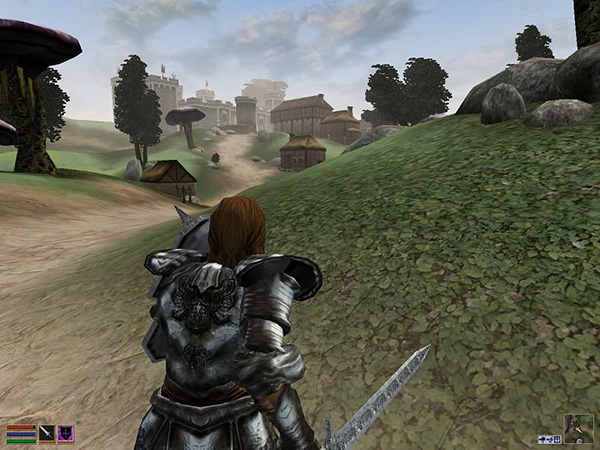 |
| Andrew Barker |
Slaughter that slime? Or duel to the death with a Daedra?
12.31.14 - 8:18 PM
If you're an RPG fan, then you will have undoubtedly spent time grinding levels in order to make yourself more powerful. Some times, it's necessary to overcome challenges; others, it's just a way to enjoy steamrolling over your foes. Farming experience has been a staple of the genre since the beginning, though western RPGs of recent years seem to have opted to scale difficulty and negate the need for it. Japanese RPGs still stick by it though, and even modern titles in the sub-genre often require annihilation of species to level up your characters. Is it right or wrong to require grinding? Is scaling worthwhile? Let's take a look.

Do you remember grinding up those extra levels to tackle the bosses in Star Ocean or Tales of Phantasia? What about improving your characters to take on (insert preferred Final Fantasy game here)'s version of Omega Weapon? In more recent years, perhaps you've run near-endless dungeons in Hyperdimension Neptunia to enhance your console goddesses? If you've played any JRPGs, you'll likely be familiar with grinding for experience. It's not always a necessity, but it's a handy trick to overcome challenging bosses or other difficulties.
But is grinding an annoyance? For most players, I think the answer is yes. Levelling up by defeating foes is fun and rewarding, but if you're skilled enough to beat a boss but too low a level to do so in a reasonable period of time, then grinding can be a frustration. In many older JRPGs (and some newer ones), grinding was often a requirement to overcome certain encounters, since simply fighting every enemy on your way to it wouldn't raise your level high enough.
Western RPGs tend to take a different approach...

Ah, Morrowind. My first experience with The Elder Scrolls, as I suspect it was for many players. Before the voids of Oblivion and the snowy peaks of Skyrim was this less-traditional fantasy gem. Unlike its younger siblings, Morrowind featured little in the way of scaling. If you wandered into the wrong cave at a low level, you could well be greeted by Clanfear, Daedra, or something even more horrifying for a new character. Morrowind's approach to levelling was basically "suck it up." Lockpicking too low to open a chest? Come back later. Too weak to beat an enemy? Try again another time. Grinding in The Elder Scrolls is not straight-forward either, due to the unusual skill-raising levelling system.
Oblivion threw Morrowind's approach out the window and scaled nearly every aspect of the game, from enemy types to quest rewards. It became frustrating to complete certain quests and get a sub-optimal reward because you weren't a high enough level yet. Clear out a dungeon full of rats at a low level, come back a couple of dozen later and it's filled with Daedra. I quickly installed a mod on my PC version to remove this, though console players were without a fix. I suspect many players weren't bothered by it, however.
BioWare takes a similar, albeit more even-handed, approach to scaling. Like The Elder Scrolls, Dragon Age games are scaled so that the levels of foes you encounter are roughly matched to your own. This is effectively a necessity in a series of games where you're able to tackle areas in any order you like. Unlike Oblivion, however, Dragon Age caps out the scaling at both ends so that some enemies will always be tougher and others will always be easier, with maximum and minimum levels. This allows the player to feel a sense of power, but makes sure they are provided with adequate challenge; a comfortable middle-ground.

In my experience, the primary advantage of a game without scaling is the sense of accomplishment you feel. It's immensely satisfying to slaughter an enemy that gave you trouble at a low level once you're more powerful. In many games that scale enemies, such as Oblivion, those "entry-level" foes vanish as you hit higher stats. Everything in moderation though, as they say; required grinding is a headache-induced nightmare.
Scaling also has its advantages, though: balanced difficulty throughout the game, better rewards from low-level quests you might have missed, and more powerful foes in already visited locations. As someone who enjoys a traditional JRPG style of levelling, it's not my preferred choice, but it is nice to take a break from endless hordes of random battles and level grinding.
It's clear that games can work well with or without scaling, though the achievement you feel at their completion will vary between "I'm super-powerful and awesome!" or "Wow, that was tough, but I beat it!" (Disclaimer: You may not actually say this/feel this way.) Required experience grinding, on the other hand, can be safely tossed.